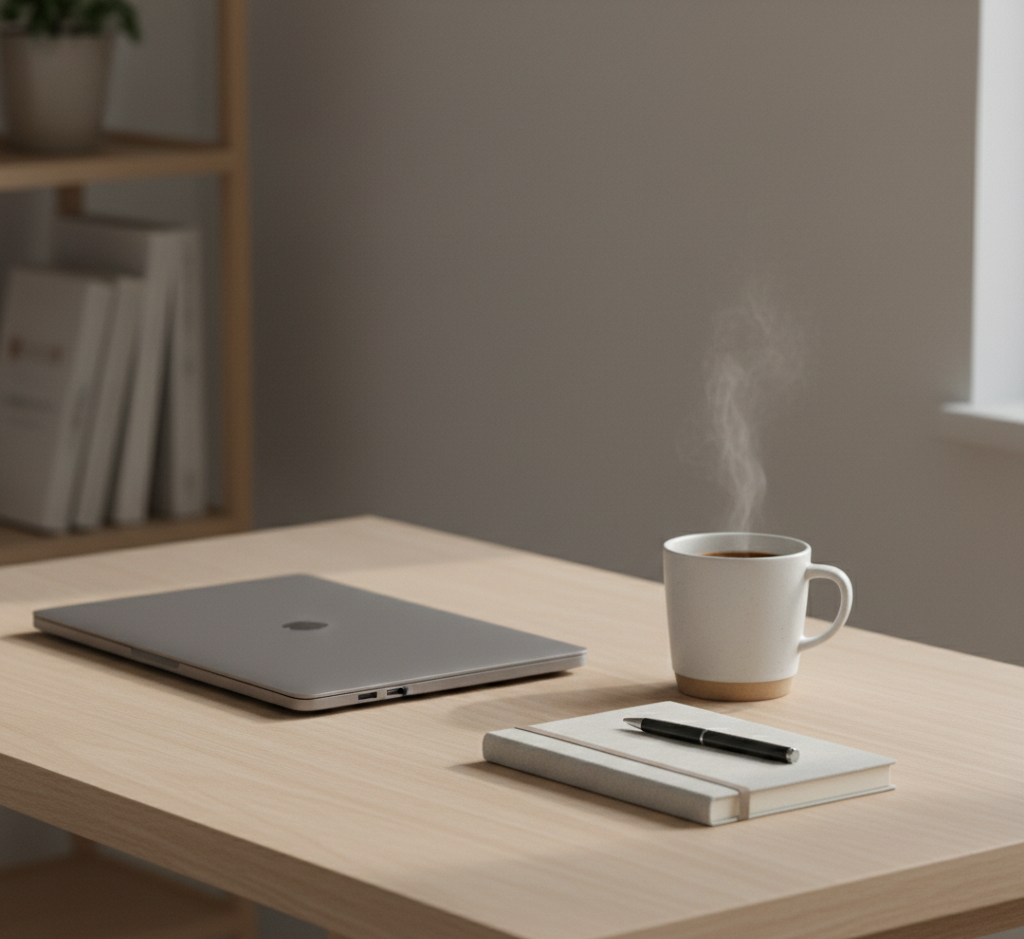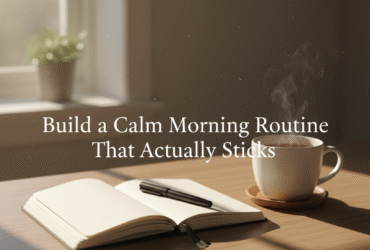Have you ever caught yourself tweaking your to-do list again — not because it wasn’t working, but because you couldn’t shake the feeling it could be even better? We’ve all been there. The modern obsession with productivity can make it feel like if we’re not optimizing, we’re falling behind.
But here’s the quiet truth: chasing constant efficiency can sometimes make us less effective. We end up exhausted, distracted, and disconnected from the very meaning behind our work.
This post builds on ideas from The Art of Doing Less: How to Work Smarter, Not Harder — where we explored the value of slowing down and creating more flow. Today, we’ll go a layer deeper. You’ll learn how to recognize four subtle signs you’re over-optimizing your productivity — and how to restore balance before burnout sneaks in.
1. You’re Spending More Time Tweaking Your Systems Than Using Them
Productivity tools can be empowering — until they start taking over your life. Maybe you’re constantly reorganizing your Notion dashboards, switching between task apps, or color-coding your planner for the fifth time this month.
When you spend more time optimizing your system than doing the work it’s meant to support, it’s a sign the system has become the goal.
Key takeaway: Productivity tools should serve you, not consume you.
Try this:
- Set a “system review” window once a month instead of daily tinkering.
- Choose one tool and commit for at least 30 days before changing it.
- Ask yourself before any tweak: “Will this actually help me get something done?”
I once spent an entire weekend “perfecting” my task database — and by Monday, I was too mentally drained to use it. Simplicity won that round.
2. You Feel Guilty When You’re Not Being ‘Efficient’
Efficiency is great — but when it becomes your metric for self-worth, it’s a trap. You might catch yourself feeling restless during rest, anxious in downtime, or guilty for having an “unproductive” afternoon.
That’s a clear sign of toxic optimization mindset — where busyness replaces balance.
Key takeaway: Rest is not the opposite of productivity; it’s part of it.
Ask yourself:
- Do you feel guilty when you take a slow morning or step away from your desk?
- Do you equate relaxation with laziness?
- Are your hobbies quietly turning into “projects” to improve?
Reframing this takes practice. One small shift is to schedule rest as intentionally as you schedule work — because rest that’s honored is rest that restores.
3. Your Focus Is on Output, Not Outcomes
If you’re constantly measuring success by how many tasks you complete — instead of whether they move the needle — you’re likely stuck in a productivity loop.
This happens when we confuse activity with impact. Checking boxes feels satisfying, but if those boxes don’t connect to something meaningful, it’s just motion without direction.
Key takeaway: Doing less can create more impact — if you choose what matters most.
To reset:
- Review your task list weekly and ask: “Which of these truly matters?”
- Identify your top 1–2 priorities for the week — not 10.
- Track progress by outcomes (projects finished, clarity gained), not by task count.
A great tool for this mindset shift is Todoist, which lets you label tasks by impact level — a small but powerful change that helps you see quality over quantity.
4. You’re Constantly Searching for the “Perfect” System
You might tell yourself, “Once I find the perfect app or planner, everything will finally click.” But that “perfect” setup doesn’t exist — because productivity is deeply personal and evolves with your seasons of life.
When you’re always chasing the next method, you’re unknowingly delaying action. It’s a form of productive procrastination — disguised as progress.
Try this mindset shift:
- Replace “optimize” with “experiment.”
- Set a time boundary: test one new tool per quarter, not per week.
- Remember, your best productivity system is the one you actually use.
Key takeaway: There is no perfect system. There’s only what works for you, right now.
Bringing It All Together

If you recognized yourself in one (or all) of these signs — take a breath. Over-optimizing isn’t failure; it’s feedback. It’s your brain’s way of saying, “I’ve lost sight of the why.”
By simplifying your tools, redefining rest, focusing on outcomes, and embracing imperfection, you make space for something far more valuable than efficiency: ease.
And if you want to go deeper on creating that ease, revisit The Art of Doing Less: How to Work Smarter, Not Harder. It’s a perfect next read — especially if you’re ready to work with flow, not friction.




